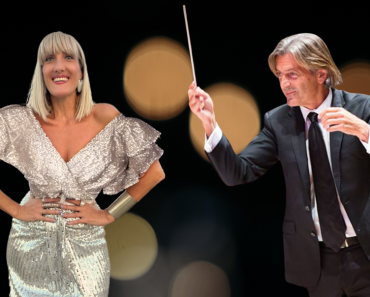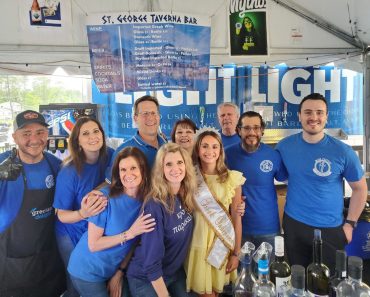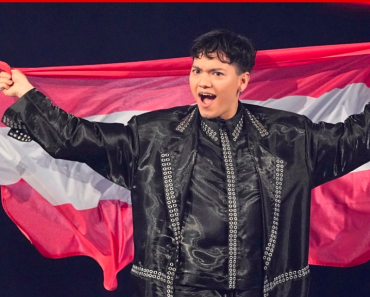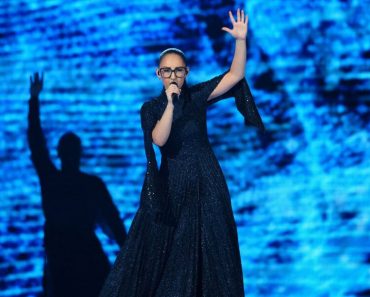
From Heirlooms to Hope—Klavdia Carries Greece’s Eurovision Dreams into 2025
Twenty years after Helena Paparizou’s unforgettable victory with My Number One, Greece is once again dreaming big at the Eurovision Song Contest. This year, all eyes are on Klavdia—a rising star in the Greek music scene—who’s set to take the European stage by storm with her hauntingly emotional ballad, Asteromáta.
Though only 22 years old, Klavdia has quickly cemented her status as one of Greece’s brightest musical hopes. With platinum singles under her belt, a dedicated following of over 200,000 TikTok fans, and a growing reputation for fusing modern production with traditional Greek influences, Klavdia represents a new generation of artists unafraid to blend the past with the present.
Register for Tekedia Mini-MBA edition 17 (June 9 – Sept 6, 2025) today for early bird discounts. Do annual for access to Blucera.com.
Tekedia AI in Business Masterclass opens registrations.
Join Tekedia Capital Syndicate and co-invest in great global startups.
Register to become a better CEO or Director with Tekedia CEO & Director Program.
Euronews Culture caught up with Klavdia during her Eurovision preparations, where the energy backstage is high and rehearsals are in full swing. “The vibe here is amazing,” she says, beaming. “The energy of the team is really high. We love being here. We’re having so much fun—it’s better than I thought it would be.”
Asteromáta: More Than a Song
Klavdia’s entry Asteromáta, which translates to “starry-eyed,” is more than just a love song. Sung entirely in Greek, the ballad is steeped in emotional nuance and cultural significance. At its core, it speaks of separation, loss, and the longing for reunion—universal themes that echo the experiences of many displaced people across history.
While Klavdia has been cautious in drawing direct parallels, listeners and critics alike have pointed to the song’s deeper context. Klavdia is of Pontic Greek descent—a community that suffered mass displacement and persecution during and after World War I. The word asteromáta itself was historically used in the region of Smyrna to describe women with luminous, captivating eyes. That subtle connection has sparked political discourse, particularly from Türkiye, which continues to deny the genocide of Pontic Greeks.
“The song talks about separation from loved ones, your family, your friends, and having to leave your home,” Klavdia says softly. But even amid controversy, she remains grounded: “Music is here to unite people all over the world, not to divide us.”
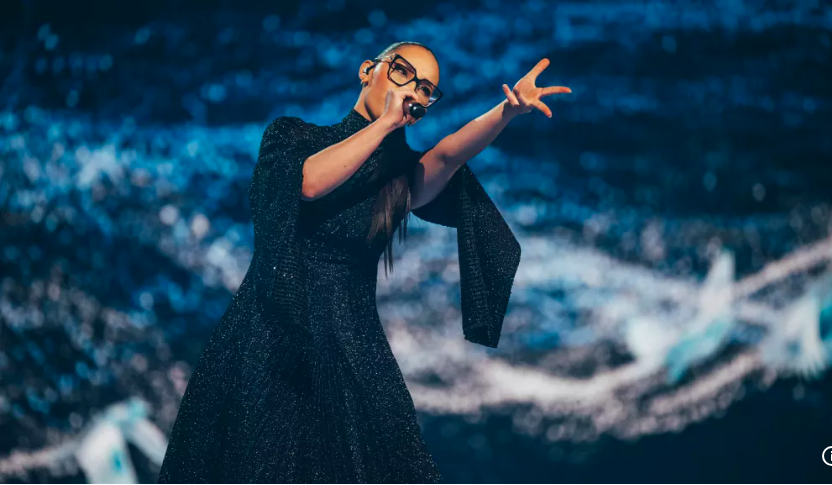
A New Sound Rooted in Heritage
Despite its contemporary production, Asteromáta remains deeply tied to Greek tradition. From melodic phrasing to the use of the klarino (Greek clarinet), the song honours heritage while appealing to modern ears.
“We’ve used traditional Greek melodies and vocal runs, and even included ‘to klarino,’ the classic clarinet in Greek music,” Klavdia explains. For her, singing in Greek is not a limitation but a strength. “I think it’s beautiful that countries can sing in their native languages and showcase their culture. That’s what Eurovision is all about.”
She’s confident that the emotional power of her performance will transcend language barriers: “I think anyone can relate to the song through their own emotions, experiences, and memories. I really hope they feel what I feel when I sing it.”
A Stage Set to Surprise
When it comes to staging, Klavdia is keeping things under wraps—but promises something memorable. “We want something that connects with the song but also amazes you,” she hints. “Something that makes you say, ‘Oh, I wasn’t expecting that.’”
Still, Klavdia is determined to keep her performance grounded in sincerity. “I came here really determined to enjoy everything, to connect with people, to make friends and enjoy this musical journey with positive vibes,” she says.
Wearing Her Heart—and Heritage—on Her Sleeve
Beyond the music and performance, Klavdia is bringing deeply personal touches to the Eurovision stage. Her signature glasses—now a staple of her look—are more than a style choice: “My glasses are a lucky charm for me. I think they’re a good feature that makes me stand out.”
Even more meaningful are the earrings she wears—heirlooms passed down from her grandmother, also named Klavdia, who was forced to flee from Pontus to the Soviet Union before the family eventually settled in Greece in 1991. She wore them during the national final, and she believes they brought her luck.
“They’re my lucky earrings,” she smiles. “These are two people I really love. My mom and my grandma. And they love me too.”
She also wears a necklace featuring the Greek mati—the traditional eye charm symbolizing protection—given to her by her mother. These small but powerful tokens serve as emotional anchors for Klavdia as she steps onto one of the world’s biggest stages.
Greece’s Shining Star
With her heartfelt ballad, compelling stage presence, and deep respect for her cultural roots, Klavdia is more than just another Eurovision hopeful—she’s a symbol of resilience, connection, and modern Greek identity.
As Europe tunes in for the 2025 Eurovision Song Contest, Greece’s hopes once again rest on a powerful voice with a powerful story. And if Klavdia’s performance is anything like her journey so far, Asteromáta may very well light the way home.
Conclusion
As Greece marks two decades since its last Eurovision triumph, Klavdia steps onto the European stage not just as a performer, but as a storyteller carrying her roots, emotions, and hopes. With Asteromáta, she weaves a rich tapestry of modern Greek sound and cultural heritage—speaking to loss, strength, and identity in a way that resonates far beyond borders. Whether or not she clinches the trophy, Klavdia has already succeeded in capturing hearts, showcasing Greece’s evolving musical identity, and reminding audiences that Eurovision is about more than just a song—it’s about the stories we share.
Uploaded files:




